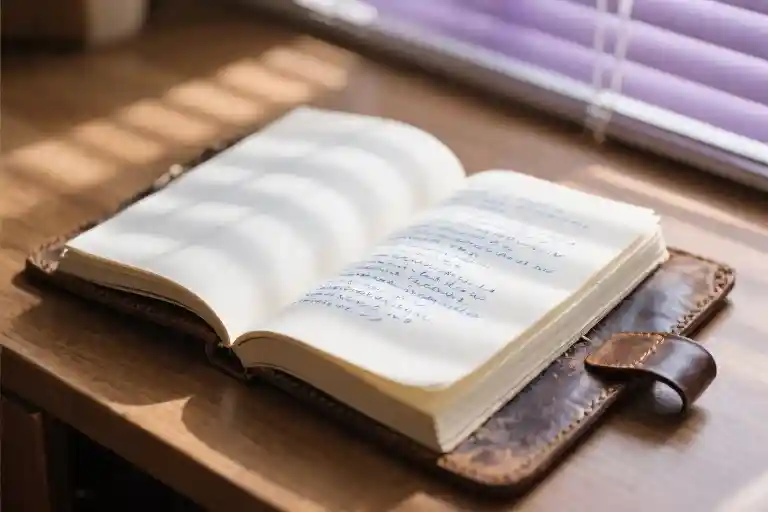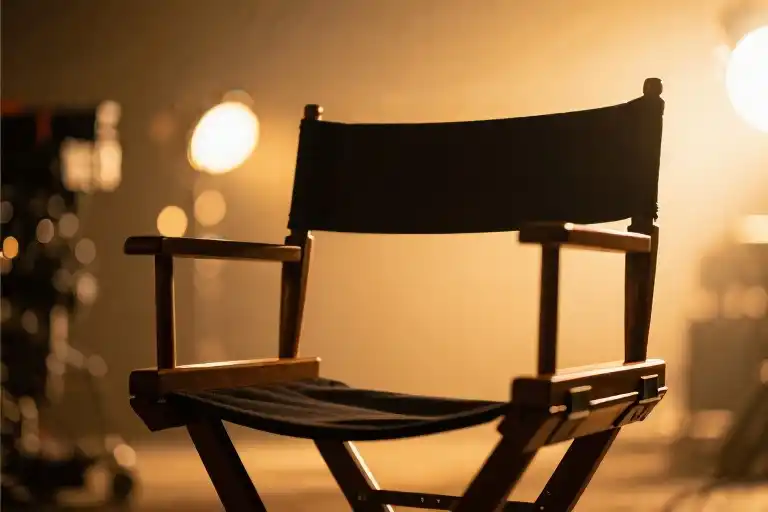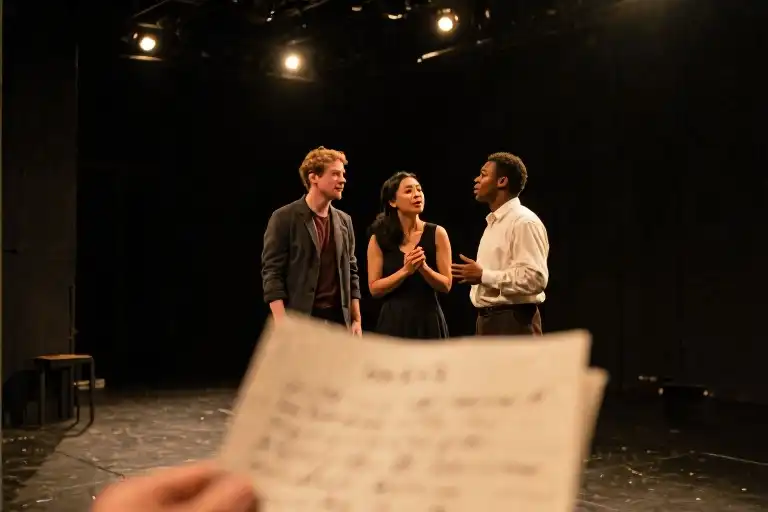The leather cover felt cold under my fingertips, that particular kind of damp cold that seems to seep into your bones. I’d noticed the broken lock three days ago – just a slight wobble when I’d brushed against the drawer while searching for batteries. The kind of detail your mind files away without permission.
My thumb hovered over the edge of the page. There’s that moment before crossing any line where time stretches thin, where you can still pretend you’re not really doing the thing you’re absolutely about to do. The diary fell open to page three with a sound like dry leaves.
If I’d known what those inked words would reveal, I would’ve let the drawer stay shut. Would’ve let the lock remain broken. Would’ve lived with not knowing. But the human heart has this terrible hunger for truths it can’t digest.
The paper smelled faintly of lavender and something metallic, like old coins. I remember thinking how ordinary danger looks up close – just black letters on cream-colored pages. Then the footsteps came.
What fascinates me now isn’t the shame or the panic (though God knows there was plenty of both), but how memory edits in hindsight. The way my brain recorded certain details with unnatural clarity – the grain of the desk wood under my palms, the exact angle of sunlight through the blinds – while blurring others entirely. Trauma does that, I suppose. Gives you a spotlight but takes away the stage.
There’s an art to writing about guilt without naming it. The way my pulse jumped at the sound of keys jingling outside wasn’t fear of getting caught, but the sickening realization that I’d already been caught by myself. That’s the real theft – not taking someone else’s secrets, but stealing from yourself the person you believed you were.
Suspense lives in these small domestic moments far more than in any thriller plot. The creak of a floorboard when the house should be empty. The way a familiar voice changes timbre when saying something ordinary like ‘What are you doing?’ The terrible algebra of calculating how many seconds it takes to undo what can’t be undone.
What makes diary scenes so electrically uncomfortable is how they mirror our own vulnerabilities. We’ve all been on both sides of that drawer – the one peering in, the one with things to hide. Maybe that’s why the best suspense writing doesn’t come from exotic crimes, but from these quiet violations of trust that leave no visible marks.
I could describe the contents of page three. The words are burned into my memory with perfect clarity. But some truths lose their power when spoken aloud, and others gain too much. Besides, what terrifies you in the telling might bore someone else in the hearing. Real horror is always personal.
That’s the dirty secret about secrets – they’re only dangerous until someone knows them. After that, the danger becomes what knowing does to you.
The Guilty Pages
The sunlight streaming through the blinds suddenly dimmed as clouds passed overhead, casting shifting shadows across the open journal in my lap. My finger trembled against the worn paper edge of page three, where the real confession began. Two fragmented sentences burned into my vision:
“The hospital reports are hidden…”
“She can never know about…”
The incomplete phrases coiled in my stomach like live wires. I leaned closer, desperate for context, when the first footstep cracked through the silence.
Every muscle locked. My breath condensed in my throat. The diary’s spine creaked as my grip involuntarily tightened, leaving crescent-shaped impressions on the paper. Some distant part of my brain registered the irony – I’d become the very thing I feared, leaving permanent marks where I didn’t belong.
Three more steps echoed down the hallway, each one punching through the floorboards into the soles of my feet. The rhythm was unmistakable – the slight drag of his left shoe from that old basketball injury. My skin prickled with the surreal horror of a sleep paralysis nightmare, where you scream but make no sound.
The journal pages fluttered as my knees jerked, reacting before my mind could form a coherent thought. A drop of sweat bloomed on the phrase “permanent damage”, blurring the ink into a Rorschach blot that seemed to grow as I watched. The footsteps stopped outside the door.
In that suspended second, I noticed absurd details: a coffee stain on the page corner shaped like Italy, the chemical scent of fear cutting through the paper’s vanilla perfume, the way my pulse throbbed behind my eyeballs. Time bifurcated – part of me still flipping through pages in the sunlit past, the rest trapped in this shadowed present where the doorknob began to turn.
The Slow-Motion Catastrophe
The rustle of diary pages under my fingertips sounded like a hurricane in the sudden silence. My thumb had just left a damp crescent on the corner of page three when the first metallic jingle cut through the air – his keychain, the one with the broken bottle opener that always clicked twice against the doorknob.
Time fractured. The digital clock on the nightstand blinked from 2:17 to 2:18 as my wrist turned upward, a movement that seemed to stretch across decades. The watch he’d given me last birthday caught the light, its second hand frozen mid-tick. That same afternoon flashed through my mind: his laughter as I’d unwrapped the journal (‘For your poetry,’ he’d said, tapping the leather cover), the way the gift ribbon curled like the edge of the page I was now clutching too tight.
Outside the door, shoes scuffed against the welcome mat in a rhythm I knew by heart. Left foot drag, right foot stomp, the way he always did after eight hours standing at the assembly line. My lungs burned. I’d counted seven breaths since hearing the car pull in, each shallower than the last, yet the diary still lay open across my knees, its exposed sentences pulsing like an open wound:
*’…results came back positive…’
‘…can’t let her find the…’*
The keys jingled again, closer now. Some detached part of my brain noted how ordinary it sounded, this melody of coming home, while my body vibrated with the electric terror of a burglar caught mid-heist. The diary’s spine creased as I finally snapped it shut, the sound disproportionately loud, like a gunshot in the quiet room.
Through the wall, the kitchen faucet dripped three times – an absurdly precise count that made me wonder if fear had granted me supernatural hearing. The footsteps paused. I imagined him tilting his head, sensing the wrongness in the air, the way animals do before earthquakes. My tongue stuck to the roof of my mouth, parched as the day we’d spread his mother’s ashes in that Arizona canyon.
Then the doorknob turned with the squeak it always made in humid weather, and the present came rushing back in a nauseating wave. The diary weighed nothing in my hands yet pulled me down like an anchor. Last chance to wipe my prints from the cover. Last chance to leap for the window. Last chance to unsee those fragmented lines that had already begun rewriting our history.
But the moment stretched elastic, and all I could do was watch my own fingers smooth the crumpled page corner, a pointless gesture of atonement, as the door began to open.
The Silent Accusation
The door swung open with a sound like a sigh, slicing the room diagonally with a blade of hallway light. Dust motes swirled in the sudden illumination, catching on the edges of my vision like static between channels. His silhouette filled the doorway – not the after-work slump I knew, but a rigid outline that made my stomach drop.
Three feet away, the journal lay exposed on the desk, its pages slightly curled at the corners from my clammy fingers. That morning’s coffee stain on page two had darkened into a Rorschach blot, now looking unmistakably like an open mouth mid-scream.
‘What are you doing?’
The question hung between us, but the unspoken ones vibrated louder: How much did you read? What do you know now? When did you start betraying me? I watched his eyes dart to the drawer where this leather-bound Pandora’s box belonged, its brass key still dangling from the lock I’d picked with a bobby pin.
My tongue stuck to the roof of my mouth, tasting of copper and Earl Grey. The diary’s most damning line pulsed behind my eyelids in time with my carotid artery: ‘the adoption papers must never—’
Neither of us moved. Somewhere downstairs, a faucet dripped four times before I managed to shape air into words: ‘Nothing.’ The lie slithered out, serpentine. His left eyelid twitched – just once, like a faulty neon sign – and I knew he knew.
When I reached to close the journal, the sound of peeling skin from leather echoed like a pistol cock. The drawer accepted its contraband with a screech that set my teeth on edge, its finality making me flinch. That’s when I noticed his shoes weren’t his usual loafers but black Oxfords polished to a funeral shine.
We remained statues in our diorama of distrust, the grandfather clock in the hall counting seven deafening ticks before he turned away. The door didn’t close behind him, just swayed slightly on its hinges, letting in a sliver of light that stopped precisely at my toes.
On the desk, one feather from the broken quill pen trembled in the draft. It pointed diagonally toward the drawer, as if making an accusation the room wouldn’t voice aloud.
The Weight of Silence
The journal made a soft thud as it slid back into the drawer. My fingers lingered on the brass handle, cold against my skin. Outside, a car door slammed, and for one absurd moment I thought he’d left again, that this whole confrontation might just disappear like morning fog. But the refrigerator hummed back to life in the kitchen, marking time in a way that made the silence between us feel heavier.
I sat on the edge of the bed, the same spot where I’d opened the journal fifteen minutes earlier. The mattress springs creaked under me, loud as gunshots in the quiet room. Through the thin walls came the neighbor’s laughter, bright and carefree, the exact opposite of the leaden feeling in my chest.
He hadn’t moved from the doorway. I could feel his stare like physical pressure between my shoulder blades. My throat tightened around all the questions I wanted to ask – about the hospital records mentioned on page two, about the underlined date that matched my mother’s birthday. But the words turned to ash on my tongue.
Some secrets aren’t meant to be uncovered. The knowledge sat in my stomach like something indigestible. I pressed a hand to my abdomen, half expecting to feel the sharp edges of the truth I’d swallowed whole.
Down the hall, the refrigerator cycled off again. The sudden absence of sound made my ears ring. I counted the spaces between our breaths – his measured, mine shallow – until the numbers lost all meaning.
And that name. The one written with such deliberate care on the third page. It lodged in my throat like a fishbone, painful with every swallow but impossible to dislodge. I closed my eyes and saw it again in looping blue ink, the letters blurring as my vision had when I first understood what it meant.
Outside, a dog barked. The neighbor’s laughter rose again, then faded behind a closing door. Ordinary life continuing while ours fractured in the quiet. The journal’s spine had left a ridge along my palm when I’d gripped it too hard. I traced the mark now with my thumb, a physical reminder of what couldn’t be unseen.
Neither of us had spoken since my lie. The air between us thickened with everything we weren’t saying. I wondered if this was how it felt to drown – the slow realization that the surface had somehow become unreachable while you weren’t paying attention.
The drawer handle had left an imprint on my fingers. I studied the pale lines crossing my skin, thinking about all the ways we leave marks on each other without meaning to. The journal was back where it belonged, but nothing would ever fit quite the same way again.



